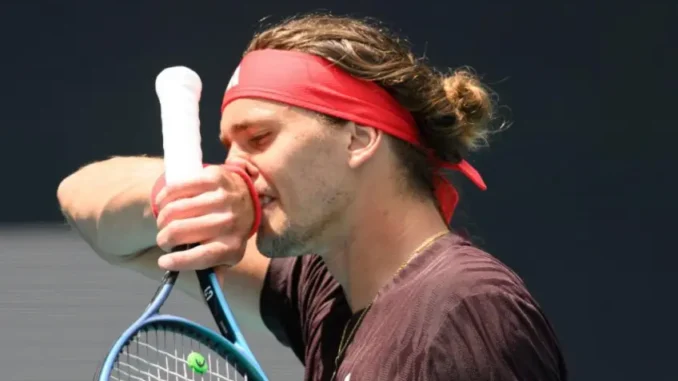
The tennis world, a stage of relentless competition and unwavering scrutiny, has recently witnessed the fluctuating fortunes of Alexander Zverev. Once hailed as a potential future world number one, Zverev’s journey has been marked by periods of brilliance interspersed with frustrating inconsistencies. A prominent figure from the sport’s past, with a keen eye for the game’s intricacies, recently offered insights into the potential reasons behind these struggles, shedding light on the complexities of maintaining peak performance at the highest level.
“It’s not about talent,” the former champion asserted, emphasizing that Zverev’s inherent ability has never been in question. Instead, the focus shifted to the mental and emotional aspects of the game. “It’s about the head,” he stated, suggesting that the pressures and expectations associated with elite tennis can take a significant toll.
The narrative surrounding Zverev’s career has often revolved around his powerful serve and formidable groundstrokes, tools that have allowed him to challenge the very best in the sport. However, the ability to consistently execute these skills under the immense pressure of major tournaments is a different matter altogether. “The big points, the crucial moments, that’s where the difference lies,” the former champion explained. He implied that the ability to maintain composure during these pivotal moments is what separates champions from contenders.
The discussion also touched upon the importance of mental resilience, a trait that is essential for navigating the rollercoaster of professional tennis. “You have to be able to handle the ups and downs,” he elaborated, acknowledging the inherent challenges of maintaining a consistent level of performance throughout a demanding season. The constant travel, the relentless competition, and the pressure to perform week in and week out can create a formidable mental burden.
Furthermore, the conversation explored the significance of strategic adjustments and adaptability. “You have to evolve,” the former champion added, suggesting that stagnation can be a significant impediment to progress. The tennis landscape is constantly evolving, with new players emerging and existing players refining their games. The ability to adapt to these changes and incorporate new strategies is crucial for long-term success.
The narrative also addressed the importance of a strong support system. “It’s not just about the player,” he noted, highlighting the crucial role that coaches, trainers, and family members play in supporting an athlete’s journey. The ability to rely on a trusted team for guidance and support can provide a crucial buffer against the pressures of the sport.
“You need to have the right people around you,” he emphasized, underscoring the importance of surrounding oneself with individuals who can provide both technical expertise and emotional support. This support network can help an athlete navigate the inevitable challenges and setbacks that arise during a long and demanding career.
In essence, the insights offered a comprehensive view of the multifaceted nature of success in professional tennis. It’s not solely about possessing exceptional physical skills; it’s about cultivating the mental fortitude, strategic adaptability, and supportive environment necessary to thrive in a highly competitive arena. The narrative painted a picture of a player navigating a complex journey, striving to harness his immense talent and overcome the mental and emotional hurdles that stand between potential and consistent achievement.
Leave a Reply